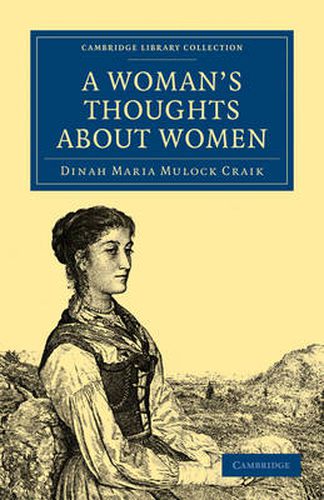Readings Newsletter
Become a Readings Member to make your shopping experience even easier.
Sign in or sign up for free!
You’re not far away from qualifying for FREE standard shipping within Australia
You’ve qualified for FREE standard shipping within Australia
The cart is loading…






Dinah Craik (1826-1887) was a prolific writer of fiction, poetry and essays. She was best known for her novels, which appropriated well-worked narratives of individuals triumphing over adversity through hard work and moral integrity against a backdrop of industrialisation and the ascent of the middle classes. The most successful, John Halifax, Gentleman, tells the tale of a boy who works his way out of poverty. Craik herself was familiar with hardship: her father Thomas Mulock, a nonconformist minister, had spent periods confined to a lunatic asylum, and abandoned his children after his wife’s death in 1854. In this work (originally published serially in Chambers’s Journal of Popular Literature, Science and Arts), Craik provided support and advice for single women like herself. She was highly critical of learned helplessness and advocated independence and cross-class sympathy, believing women should ‘lead active, intelligent, industrious lives: lives complete in themselves’.
$9.00 standard shipping within Australia
FREE standard shipping within Australia for orders over $100.00
Express & International shipping calculated at checkout
Dinah Craik (1826-1887) was a prolific writer of fiction, poetry and essays. She was best known for her novels, which appropriated well-worked narratives of individuals triumphing over adversity through hard work and moral integrity against a backdrop of industrialisation and the ascent of the middle classes. The most successful, John Halifax, Gentleman, tells the tale of a boy who works his way out of poverty. Craik herself was familiar with hardship: her father Thomas Mulock, a nonconformist minister, had spent periods confined to a lunatic asylum, and abandoned his children after his wife’s death in 1854. In this work (originally published serially in Chambers’s Journal of Popular Literature, Science and Arts), Craik provided support and advice for single women like herself. She was highly critical of learned helplessness and advocated independence and cross-class sympathy, believing women should ‘lead active, intelligent, industrious lives: lives complete in themselves’.